Overview
Our Ophthalmology Department is dedicated to providing comprehensive eye care using the latest medical advancements. Our team of highly skilled ophthalmologists specializes in diagnosing and treating a wide range of eye conditions, from common vision problems to complex ocular diseases. We offer state-of-the-art diagnostic facilities and advanced surgical options, ensuring personalized care for each patient. Our services include routine eye exams, cataract surgery, glaucoma treatment, retinal care, and corneal transplants. We are committed to enhancing your vision and improving your quality of life through compassionate care and cutting-edge technology. Our patient-centered approach ensures that every individual receives the attention and treatment they deserve.
Sub Specialities
Treatment & Ailments
Cornea Conditions and Refractive Errors
Oculoplasty
Retinal Disorders
Vitrectomy
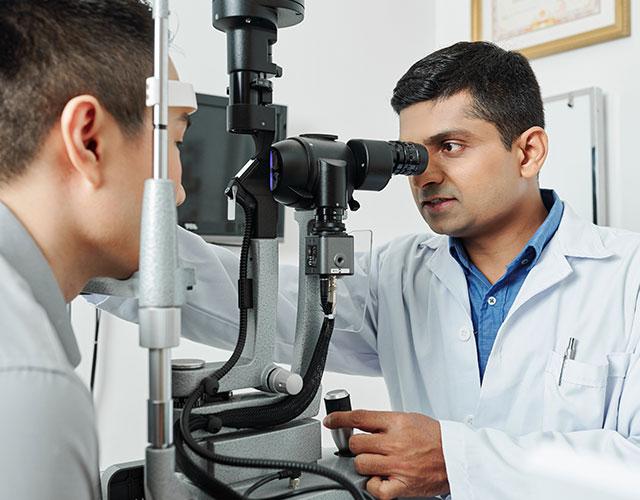
Cornea conditions like keratoconus (thinning and bulging of the cornea) and refractive errors (myopia, hyperopia, astigmatism) affect vision clarity. Treatments include LASIK (laser-assisted in situ keratomileusis) and PRK (photorefractive keratectomy) to reshape the cornea, correcting vision without glasses or contact lenses. For severe corneal damage or disease, corneal transplants (keratoplasty) replace damaged tissue with healthy donor tissue to restore vision and alleviate symptoms like pain or blurred vision.
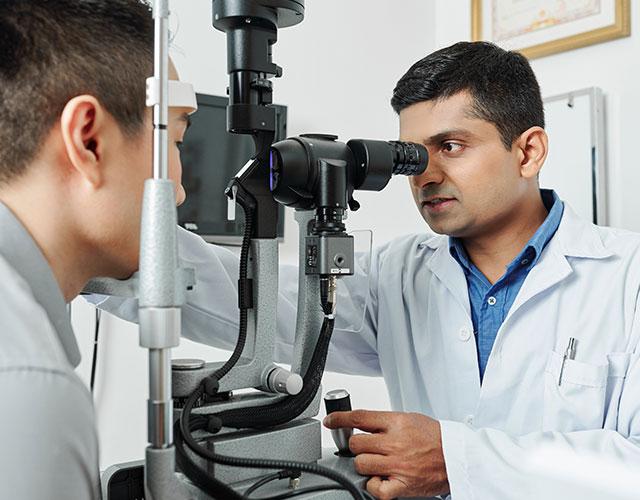
Oculoplasty involves surgical procedures to repair or reconstruct eyelids, tear ducts, and orbital structures affected by trauma, tumors, or congenital anomalies. Surgeries like blepharoplasty (eyelid surgery), dacryocystorhinostomy (DCR) for tear duct obstructions, and orbital fracture repairs aim to restore normal function, improve aesthetic appearance, and protect ocular health by ensuring proper eyelid closure and tear drainage.
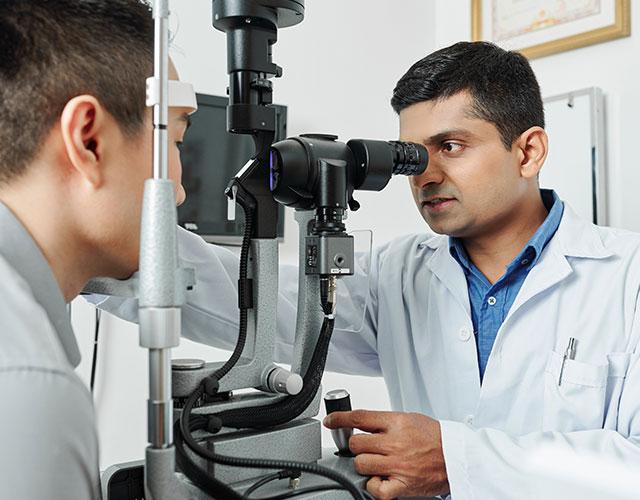
Retinal disorders such as macular degeneration (age-related or diabetic), diabetic retinopathy, and retinal detachment threaten vision. Treatment options include laser therapy to seal leaking blood vessels, intravitreal injections (anti-VEGF medications) to reduce swelling or abnormal vessel growth, and surgical interventions like vitrectomy to remove vitreous gel or repair detached retina. Early detection and prompt treatment preserve retinal function and prevent vision loss in affected individuals.
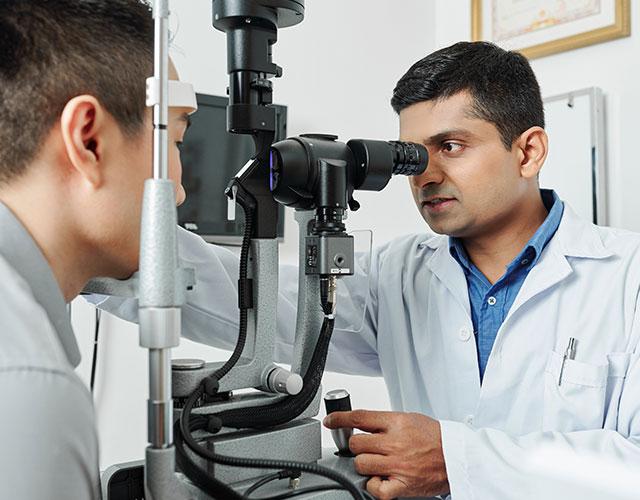
Vitrectomy is a surgical procedure to remove the vitreous gel from the eye, necessary to treat conditions like retinal detachment, vitreous hemorrhage (bleeding into the vitreous cavity), and macular holes. Surgeons use microsurgical techniques and specialized instruments to restore retinal anatomy, improve visual acuity, and prevent further complications such as permanent vision loss.
Keratoconus
Keratoconus
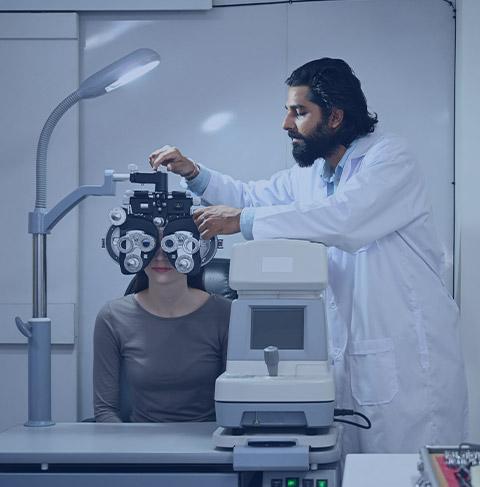
Keratoconus is a progressive eye disorder where the cornea thins and bulges into a cone shape, distorting vision. Symptoms include blurred vision, sensitivity to light, and glare. Treatment options range from prescription glasses and contact lenses to corneal cross-linking and transplant surgery, aiming to stabilize the cornea and improve visual acuity. Early diagnosis and regular monitoring are vital for managing the condition effectively.







